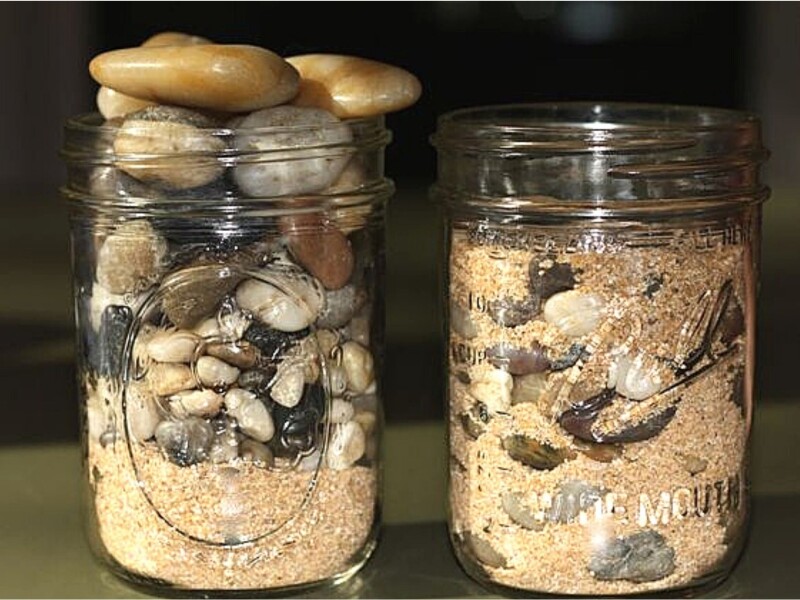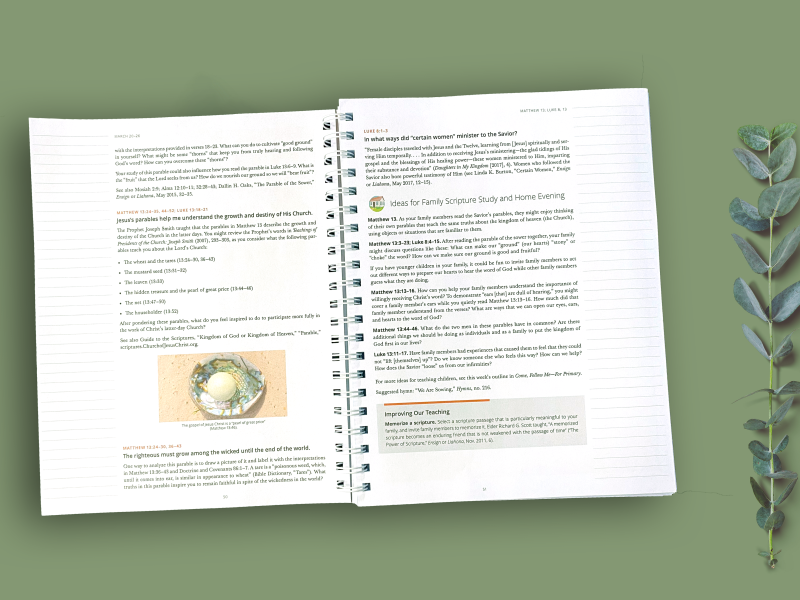As we study Revelation 15–22, the final chapters of John’s revelation, we answer the call to “come and see” that Christ is the “bright and morning star” that shines in the dark sky (Revelation 22:16). This sign is a promise that dawn is coming soon. And according to these chapters, He is coming soon. So, as we patiently wait, we see that in our waiting, our hope and faith have been purified in the fires of latter-day adversity. And this growth will have all of us calling out together, “Even so, come, Lord Jesus” (Revelation 22:20).
In Moses 6:63, the Lord says, “all things are created and made to bear record of me.” At Christmastime especially, we can apply this scripture by asking ourselves, "How do I personally bear record of Him?" This week's Come, Follow Me lesson can help guide us in this effort as we study "The Living Christ: The Testimony of the Apostles.” Let's read this witness from the Apostles and hear from several families about their experiences studying it.
In Revelation 6–14, we learn amazing insights about the Second Coming of Jesus Christ. While these chapters appear to be about horses, seals, and signs at first glance, the Savior is truly the central figure. In this episode, we'll discuss what we learn about Him and what will happen when He comes again.
In this episode, we'll begin our study of the book of Revelation—scriptures that some consider to be impossible to understand, overwhelming, and confusing. Our guest, Don Parry, says that the goal of studying Revelation is to “better understand God's designs for the future of the world and its inhabitants and prepare themselves better for the days ahead. In doing so, such individuals will find peace and calmness in their lives, because the Lord has promised us, 'If ye are prepared ye shall not fear' (Doctrine and Covenants 38:30).” So, let’s prepare, along with Don Parry, to dive into Revelation 1–5.
John the Apostle and Jude, one of Jesus’s brothers, wrote their epistles in the New Testament to correct prevailing false doctrine. These corrupt ideas, which had already started leading many Saints into apostasy, included teachings questioning whether Jesus Christ had actually appeared “in the flesh.” Today, as we study 1–3 John and Jude, we’ll dive into how these apostles stood for truth and dispelled erroneous beliefs.
Have you ever considered how inspiring Peter was during the last few years of his life? Christ had shown the Apostle how he would be persecuted and martyred—yet Peter carried on bravely and faithfully. As we study the books of 1 and 2 Peter, we will find inspiration on how we can press forward with optimism and love in the face of trials.
Sometimes just one verse or two of scripture will change you or someone you love. In our study of the book of James this week, you may find verses that help you figure out your mission in life. Or you may find encouragement to be more patient or speak with more kindness. Whatever inspires you, let’s dive in and let these words “enter … into every feeling of [our] heart[s].” And then, as we “receive with meekness the … word,” as James wrote, let's be a doer of the word, not a hearer only.
This week’s lesson of Hebrews 7–13 contains many of what we’ll call “sermons in a sentence.” Lines that have been inspiration for conference talks and Sunday School lessons for generations. And we believe memorizing a few of these powerful one-liners could help carry us through hard times. So let’s dive into life-changing truths like “Christ is the high priest of good things to come” or “cast not away therefore your confidence” and see how they could make a difference in our day to day lives.
Imagine you are in a boat sailing on the ocean. It is a perfect day on the water. The sun is shining; you can feel a slight breeze. All is well. But then you notice dark clouds rolling in. You calculate that there is no way you can make it to the shore for safety. The only thing you can do is batten down the hatches, drop anchor, and hope for the best. Now imagine that anchor. Is it big? Is it sturdy? Can you trust it? In today’s discussion of Hebrews 1–6, we will examine a specific anchor and the good it can do during the most tumultuous of storms of life.
When we start feeling like the man who literally misplaced his car for twenty years, we may be getting too distracted.
5 Min Read
For the 2023 Come, Follow Me study year, there's a brand-new resource for your home-centered gospel learning.
1 Min Read
A new interactive map of the Holy Land allows for a truly unique Come, Follow Me experience where families can—almost literally—follow the footsteps of Jesus Christ.
1 Min Read
Both the new Come, Follow Me study manual and journal edition feature huge, beautiful art pieces on their covers, and the imagery that accompanies each week’s study material is no less inspiring.
1 Min Read
Paul wrote many of his letters to whole groups of people. But today, we are zeroing in on a few of his more personal epistles, letters he wrote to his friends Timothy, Titus, and Philemon. You’ll see that these letters have a slightly different feel and tone to them. And Paul—as always—gives us pearls of wisdom to remember, offering each as a heartful gift from a friend.
The Thessalonian Saints were known as examples “to all that believe” and news of their faith spread to cities abroad (1 Thessalonians 1:7). But Paul knew that faithfulness in the past is not sufficient for spiritual survival in the future, and he was wary of the influence of false teachers. In today’s discussion of Thessalonians, we get to read Paul’s specific messages for these Saints. Messages that can help us continue to “perfect that which is lacking in [our] faith” and to “increase more and more” in love.
Where did Paul write some of his happiest letters? Not from the comforts of a nice home or amid the beauty of a countryside in spring. Many of the Apostle’s most uplifting words were penned in prison, including the beloved line, “I can do all things through Christ which strengtheneth me.” Perhaps Paul was more keenly aware of Christ’s strength during his time in need. In this week’s lesson, we are diving into Philippians and Colossians where Paul reminds us—especially those who feel trapped—that to live is to love Christ.
Then-Elder Henry B. Eyring gave a landmark talk in 2002 called “Rise To Your Call” for “everyone, man or woman, girl or boy, who has been called or who will yet be”—so that means all of us. Elder Eyring wanted us to know four truths: 1. You are called of God. 2. The Lord will guide you by revelation. 3. Just as God called you and will guide you, He will magnify you. And lastly, all He asks is that you give your best effort and whole heart. Paul gives similar counsel to the Saints in Ephesus. In this week’s lesson, we get to take a closer look at callings and how we can best serve the Lord, even and especially when we feel inadequate.
Before a child runs, they learn to walk. And before they walk, they learn to crawl. A simple, but beautiful, progression with a quiet lesson for us all. In today’s study of Paul’s letter to the Galatians, we learn how we can—and ought to be—growing in the gospel. Much like a child, our first steps in trying something new might be timid, but when we invite the Spirit, we can progress spiritually in ways we never imagined.
How is everyone doing today—like, right now? Before starting this week’s episode, let’s take a moment to think about or write down a sentence or two about how you are. Paul’s message in 2 Corinthians 8–13 is for those of us who maybe aren’t doing so well. For those carrying a tremendous load with no rest stop in sight. In these comforting chapters, Paul reminds us there are prayers being said in our behalf and that God has given us an indescribable gift to rely on—His surpassing grace.







